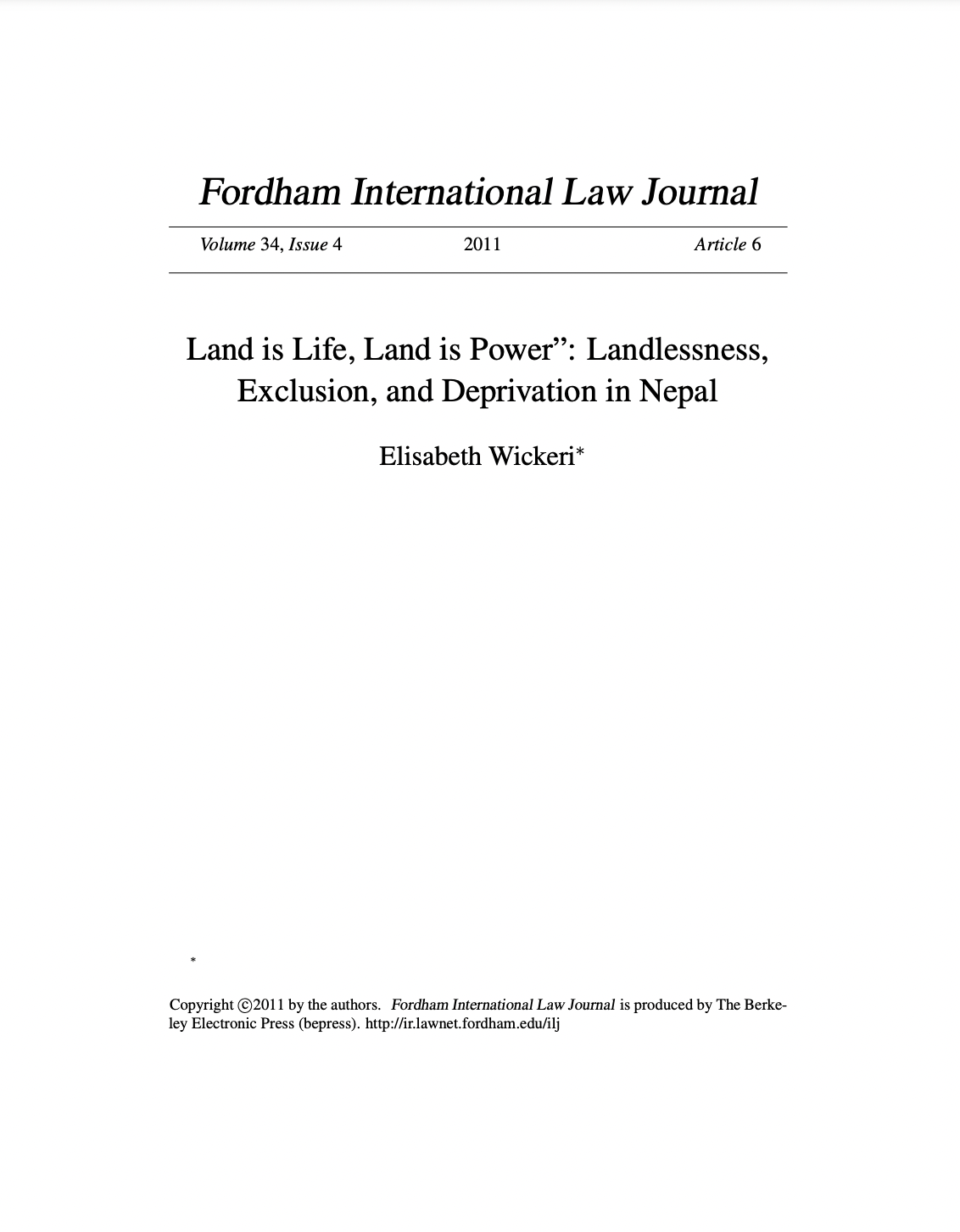Location
As our world becomes increasingly interconnected and globalized through advancements in technology, diplomacy, and other means, a publication like the Fordham International Law Journal becomes an important platform for sharing and understanding the legal issues that arise across borders and comparing them with what is occurring within our own borders. Currently in its 42nd year of publication, the Fordham International Law Journal is one of the most competitive international law periodicals in the world. The ILJ is consistently ranked in the top 10 among student-edited international law journals and, according to a recent study, is one of the most frequently cited student-edited legal publications dedicated to the study of international law. The ILJ attracts contributions from prominent statespersons and members of the academic, legal, and political communities. Journal pieces have been cited in numerous US federal court decisions, US Supreme Court briefs and decisions, international courts decisions, law review articles, and CFR and ALR annotations. Past volumes featured pieces from:
-
Kofi Annan, Advocating for an International Criminal Court, 21 FORDHAM INT’L L.J. (1997)
-
Boutros Boutros-Ghali, The Role of International Law in the Twenty-First Century: A Grotian Moment, 18 FORDHAM INT’L L.J. 1609 (1995)
-
Madeleine Albright, International Law Approaches in the Twenty-First Century: A U.S. Perspective on Enforcement, 18 FORDHAM INT’L L.J. 1595 (1995)
-
Philippe Kirsch, The Preparatory Commission for the International Criminal Court, 25 FORDHAM INT’L L.J. 563 (2002)
-
Philippe Kirsch, The International Criminal Court: A New and Necessary Institution Meriting Continued International Support, 28 FORDHAM INT’L L.J. 292 (2005)
-
Richard J. Goldstone, The Trial of Saddam Hussein: What Kind of Court Should Prosecute Saddam Hussien and Others for Human Rights Abuses?, 27 FORDHAM INT’L L.J. 1490 (2004)
The ILJ publishes five books annually comprised of articles, essays, book reviews, and student-written notes and comments, covering a variety topic areas with a strong nexus to international law. In association with Fordham’s Crowley Program on International Human Rights, the ILJ annually publishes the Crowley Report, a survey of the program’s yearly international human rights mission. The ILJ assists in the organization and production of the Fordham Corporate Law Institute’s Conference on International Antitrust Law and Policy, the Leitner/Stein Colloquium, and the New York City Bar Association’s reception for the legal advisers of the foreign ministries of the United Nations. Every spring, the ILJ hosts a symposium covering a current issue in the international community. The ILJ maintains an especially strong relationship with officials from the European Union, and consistently publishes articles devoted to EU law. Past volumes have included contributions from judges on the European Court of Justice, commissioners of the European Commission, and other senior EU officials.
Members:
Resources
Displaying 1 - 1 of 1Land is Life, Land is Power”: Landlessness, Exclusion, and Deprivation in Nepal
This Report presents the findings of this research effort. A comprehensive consideration of the many aspects of land ownership in Nepal, including the related issues of agricultural development, the impact of nonstate actors in newly-formed special economic zones, and the claims of landlords returning to land seized during the Maoist conflict is beyond the scope of this project. The Report and study focused on documenting the impact that inadequate access to land has on the human rights of landless people, including rights to housing, food, water, work, and access to justice.


